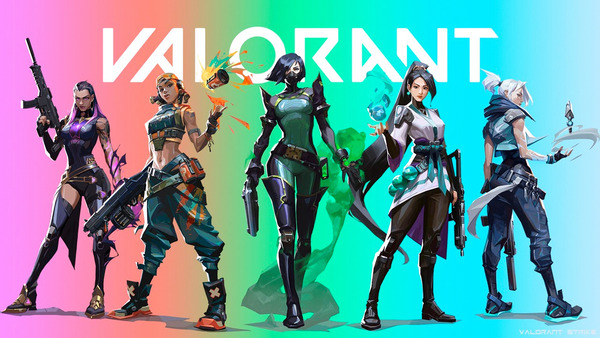Zoonomaly: Survive the Zoo, Outsmart the Unknown
Introduction: When Terror Roams in Cages
Zoonomaly is an indie horror survival game developed by Mister Morris Games, blending psychological tension with stealth mechanics inside a procedurally generated zoo gone horribly wrong. As an unarmed investigator, you're dropped into a once-friendly animal park now overrun by bizarre, reality-bending anomalies. Every cage, enclosure, and exhibit hides something terrifying—and it’s up to you to solve the mystery while staying alive.
But does Zoonomaly bring enough originality to stand out in the crowded horror genre? Let’s explore its visuals, gameplay, mechanics, and replayability to see whether this mysterious zoo is worth a visit—or best left avoided.
1. Visual Style and Presentation
A Surreal Zoo Aesthetic
Zoonomaly features a low-poly, retro aesthetic reminiscent of PS1-era horror. The graphical style adds to the uncanny feel—environments look familiar but are just "off" enough to be unsettling.
Atmosphere Over Detail
Rather than dazzling visuals, the game leans into atmosphere. Subtle lighting shifts, eerie fog, and unpredictable environmental changes keep players on edge, despite the simple textures.
Pros:
-
Distinctive retro visual style
-
Surreal atmosphere enhances immersion
Cons:
-
Lack of visual polish in some areas
-
Animations can feel stiff
2. Core Gameplay Loop: Investigate, Hide, Survive
Unarmed and Vulnerable
You’re not a hero with a gun—you’re just trying to survive. Exploration is central, and every run has you collecting keys, notes, and critical evidence while avoiding deadly anomalies.
Procedural Danger
With each session offering randomized maps, enemy types, and objectives, no two games feel the same. It’s part horror, part rogue-lite, and wholly unpredictable.
Pros:
-
Tense stealth-based survival
-
Procedurally generated layouts boost replayability
Cons:
-
Can feel aimless without a structured narrative
-
Occasional unfair enemy placements
3. Anomaly Mechanics: What Lurks Inside the Zoo
Enemies with Unique Rules
Each “anomaly” has distinct behavior patterns—some stalk you slowly, others trigger traps or distort reality. Learning their logic is crucial to survival.
Mind Games
Some anomalies mess with the game world itself—flipping controls, distorting visuals, or creating audio hallucinations that test your perception and memory.
Pros:
-
Diverse anomaly designs
-
Clever use of psychological horror
Cons:
-
No combat might frustrate some players
-
Trial-and-error learning can feel punishing
4. Objectives and Progression
More Than Just Escaping
You're not simply fleeing—you’re piecing together the truth. Collectibles, audio logs, and visual clues reveal the sinister backstory behind the zoo’s fall into madness.
Unlockable Tools and Zones
While you remain unarmed, you can unlock minor tools like flashlights or stun items to help delay your pursuers or access new areas.
Pros:
-
Narrative-driven objective system
-
Light progression elements add variety
Cons:
-
Lack of permanent upgrades
-
Repetition in item types across runs
5. World Design and Exploration
Labyrinthine Enclosures
The zoo's layout feels both familiar and alien. Tunnels under exhibits, locked doors, and broken rides make the environment feel alive… and deadly.
Environmental Storytelling
Graffiti, damaged exhibits, and scattered documents tell a story without exposition dumps. Every enclosure hints at what went wrong—and what might still be lurking.
Pros:
-
Rich environmental detail
-
Encourages exploration and deduction
Cons:
-
Navigation can be confusing
-
No in-game map or guidance
6. Sound Design and Music
Audio as a Weapon
Sound is one of Zoonomaly’s strongest features. Sudden shrieks, distant howls, and ambient zoo noises make you constantly second-guess your safety.
Minimal but Impactful
There’s little music—but that’s by design. The silence heightens every sound, making even a creaking gate a source of panic.
Pros:
-
Outstanding ambient sound design
-
Anomalies use audio to create tension
Cons:
-
Lack of a memorable soundtrack
-
Occasional audio balancing issues
7. Learning Curve and Difficulty
Tough but Fair
Zoonomaly expects you to die, learn, and try again. It rewards careful observation and punishes reckless curiosity, building tension through mechanics rather than jump scares.
Accessibility Options
Basic accessibility settings are included (like subtitle support and simplified visuals), but more options—like enemy pacing control—would benefit wider audiences.
Pros:
-
Teaches through failure
-
Promotes smart decision-making
Cons:
-
No difficulty settings
-
Initial runs may feel punishing
8. Replay Value and Randomization
New Horrors Every Time
Thanks to procedural generation, each run offers new enemy combinations and item placements. No single strategy guarantees success.
Achievements and Secrets
Optional challenges and hidden anomalies encourage multiple playthroughs for completionists and lore-hunters.
Pros:
-
High replayability
-
Hidden secrets and endings
Cons:
-
Progress resets each run
-
Some runs can feel unbalanced
9. Current Limitations and Future Updates
Early Access Skeleton
Zoonomaly is still in early development, so some features—like deeper lore or expanded anomaly types—are coming later.
Active Developer
The developer is responsive and frequently engages the community on future updates, bug fixes, and roadmap suggestions.
Pros:
-
Transparent development
-
Promising roadmap
Cons:
-
Some content still feels placeholder
-
Occasional bugs and glitches
10. Final Verdict: Should You Enter the Zoo?
Zoonomaly is a bold, atmospheric survival horror that blends stealth, investigation, and psychological tension in a procedurally generated zoo gone wrong. Its mix of rogue-lite unpredictability, puzzle-like enemy design, and immersive audio makes it stand out in a sea of indie horror games.
It’s not for everyone—players seeking action or linear stories may bounce off its systems. But for fans of Iron Lung, SCP: Containment Breach, or Darkwood, Zoonomaly offers a chilling, cerebral experience that’s as thought-provoking as it is terrifying.



























